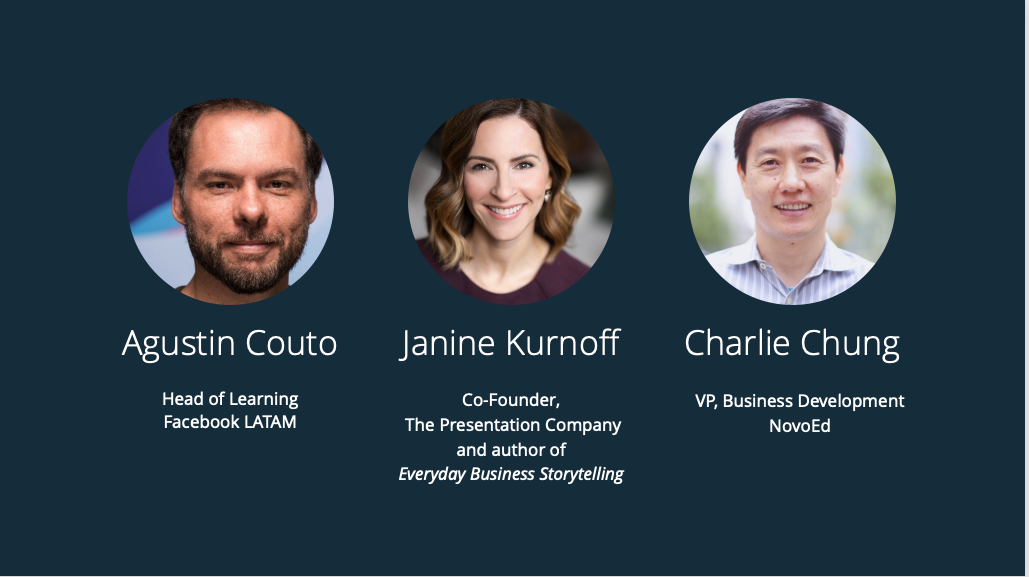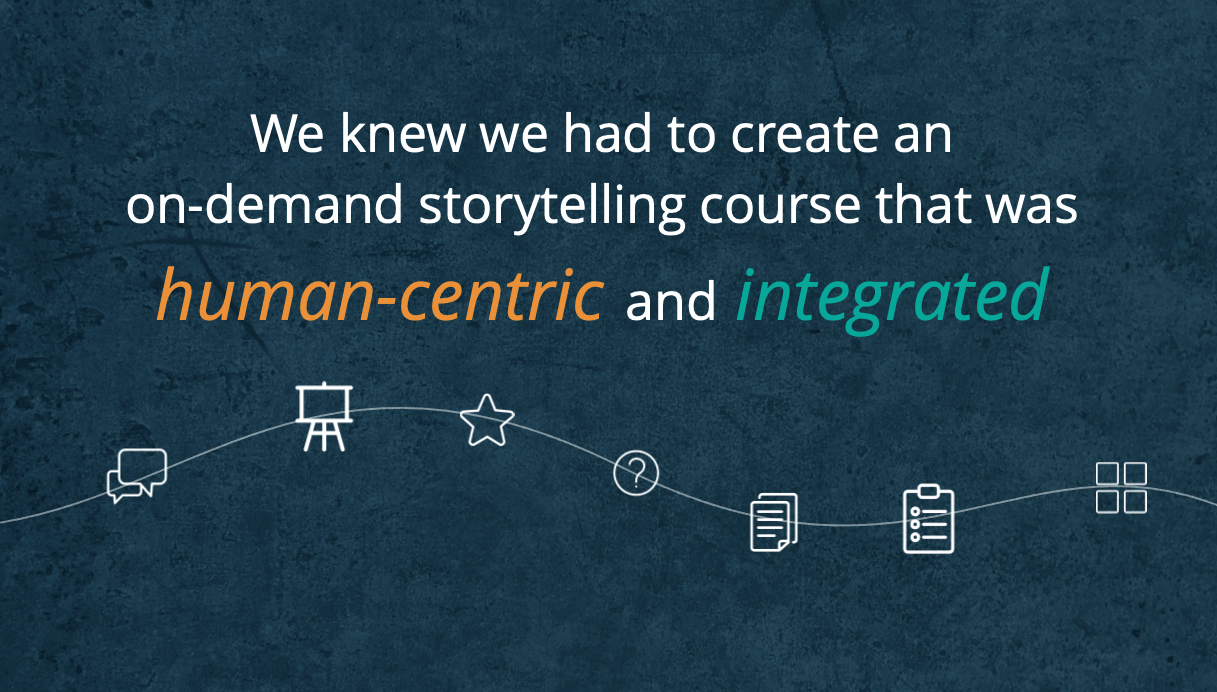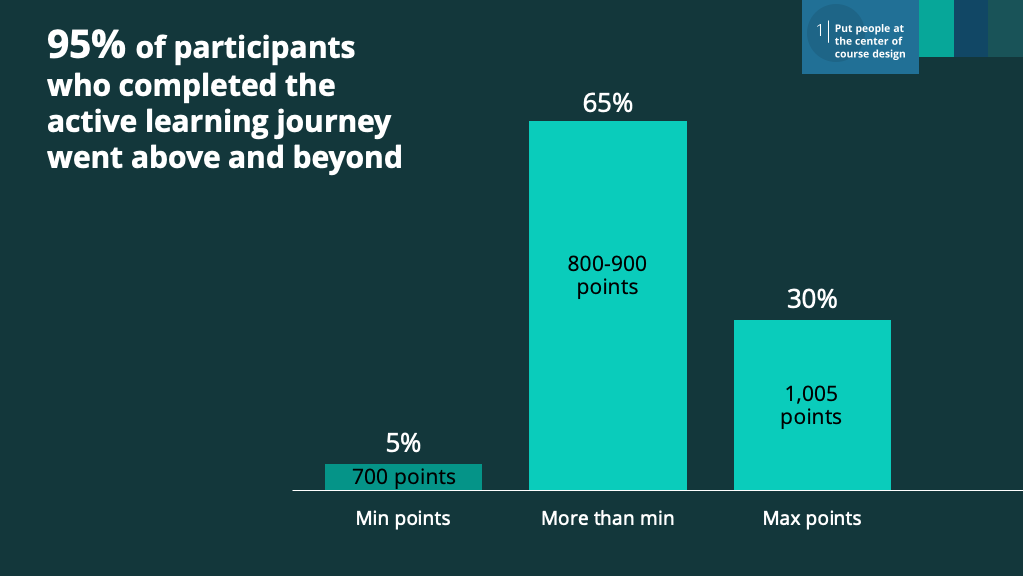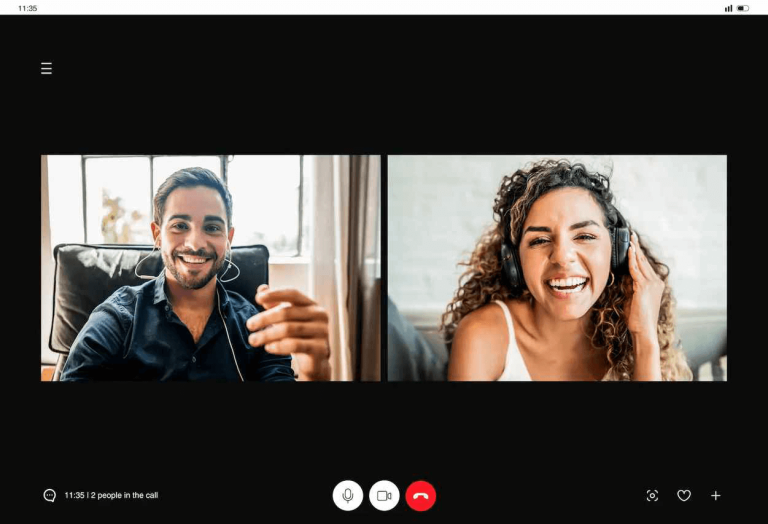4 Lessons Learned From the Partnership Between The Presentation Company, Facebook and NovoEd
The combination of these dedicated organizations provided the ingredients for creating something not just evolutionary, but revolutionary in on-demand training.
At the ATD International Conference & Expo, I co-presented a super session with The Presentation Company and Facebook on the topic of “How Facebook Got 95% Engagement with its Digital Storytelling Program.” My co-presenters were Janine Kurnoff, co-founder of The Presentation Company, and Agustin Cuoto, Head of Learning at Facebook Latin America, who joined us on stage virtually from Sao Paulo, Brazil.

The Presentation Company (TPC), a top-tier visual storytelling training firm with the mission of helping professionals build their strategic communication skills, has been innovating and refining its content and approach for many years. They were early adopters of virtual meeting technology in the early 2000s, helping teams at Apple and Cisco create effective live online training experiences.
A Daunting Challenge
Janine shared thatTCP started researching how they might offer on-demand digital training programs. What they found was not promising. The traditional eLearning paradigm was mired in some major challenges, which are familiar to many of us:
- eLearning was perceived as (and usually was) boring
- eLearning didn’t foster collaboration
- Management felt disconnected from learning activities
- Most importantly, the learning did not stick
This was not what TPC was looking for. According to Janine, “What we didn’t want was boring curriculum, that traditional eLearning that is robotic and so automated that you lose sight of the human behind the learning.” They sought a better approach, a way to put the soul back into on-demand training. The goal was to create a scalable program that was human-centric, focused on the learners, and integrated, utilizing technology as an aid rather than a hindrance. TPC found willing partners in NovoEd, with our leading cohort-based learning platform, and Facebook, a long-time client that was a willing partner in experimenting to find new and better approaches to skill development. The combination of these dedicated organizations provided the ingredients for creating something not just evolutionary, but revolutionary in on-demand training.

TPC, with some design assistance from NovoEd’s Professional Services team, settled on a cohort-based asynchronous program, where a group of learners would be engaged over a set time period, but could choose when they wanted to make progress in the online course. The program consisted of two periods: an active learning period of 10 business days, followed by a reinforcement period of up to 80 days. This gave people flexibility within the first two weeks to accommodate their schedules, but still kept everyone on track and on the same pace so that they could have a shared experience.
Breakthrough Results
Agustin at Facebook set up six different pilot cohorts to test this new training experience, comprising hundreds of sales professionals in the Latin American region. When the outcomes aggregated and analyzed, the results were almost too positive to believe:
- 95% of participants completed all of the requirements to complete the training program, and 90% exceeded the minimum requirements
- 94% of participants reported that what they learned would help them in their jobs

The benefit of setting up these six pilots was that there was the ability to tinker and fine-tune along the way. It also provided robust results across groups and time that gave us confidence that we had found a repeatable formula.
So what is that formula and what did we learn along the way? We’ve summarized them into four broad lessons learned.
Four Lessons Learned
Lesson #1: Put people at the center of course design
There was a hyper-focus on crafting the best possible sustainable learning experience for the participants with this modality. There was a hyper-focus on crafting the best possible learning experience for the participants with this modality. The UX was crisp and clean. The entire journey from beginning to end was thought through meticulously. Each message, content piece, and visual element was crafted with the learner’s perspective in mind. One obvious manifestation of this was the investment in high-quality videos from the actual facilitators that would be overseeing the program. This created strong continuity between participants and the facilitators, which is something that many programs that utilize professional actors (to maximize reusability), would not do.
“At the end of the day, you can have the best technology but we can’t forget the humans at the center of it all.“
– Janine Kurnoff, The Presentation Company
Lesson #2: People learn better together
When it comes to exploring nuance and building judgment, it is important to have exposure to other perspectives, which is why peer learning is so valuable. The NovoEd platform provides ways for participants to share their thoughts and work, and give and receive feedback. In addition to having great technology, getting maximum engagement among participants requires having a human touch. Thus, TPC introduced a “Learning Community Manager,” who oversaw the cohort’s activities, and prompted and encouraged participants to engage with the program and each other: for example, tagging specific participants and asking for their thoughts. (For more specific ideas on online facilitator roles, see this blog post on facilitator personas.) After incorporating Learning Community Managers, TPC found a 5X increase in peer feedback participation.
“People were engaged and were excited to participate…be it from a comment from a peer, from a comment from the coach, the community manager.“
– Agustin Couto, Facebook
Lesson #3: Power up the marketing engine
If a perfect training program were created in a vacuum, there is no guarantee that it would be successful. There are other important ingredients to executing a successful training initiative. One element that Agustin utilized was restricting enrollments in the cohort groups. This created a sense of scarcity, and along with a clear articulation of the program’s benefits, generated a great deal of excitement around the program.
Another (behind-the-scenes) secret to effective programs is the important role of reminding today’s busy professionals. NovoEd’s platform has a configurable notification engine that can trigger personalized communications to specific learners based on their activities and progress, or lack thereof. This allows the course facilitator to think like a marketer and judiciously nudge people at the right times in targeted ways, without spamming everyone broadly.
“People actually don’t mind being reminded if they believe in the value of the learning experience that you’re providing.“
– Charlie Chung, NovoEd
Lesson #4: Done is better than perfect
There is an advantage to running a series of small pilots: you try lots of mini-experiments and learn at a very quick rate. Other than numerous smaller refinements, there were two specific changes that made a large difference. First, the active learning period was shortened from four weeks to two weeks. It was found that learners tended to procrastinate until the end when given four weeks, but a window of 10 business days provided the right level of urgency, while still providing flexibility to accommodate their schedules.
Second, a live webinar-style kickoff event was replaced with a “course promo” video from the facilitators, sent before the course start date. Although it is generally a best practice to have a live kickoff incorporating a senior executive, in this case participants had numerous other channels to hear from execs, and it was a much better motivator to remind people how this program would help them increase critical professional skills that were important to them.
“Having that partner that’s willing to test and iterate and be okay with a little bit messy under the scenes to start was really a game changer.“
– Janine Kurnoff, TPC
Just the Beginning
The session was fun to deliver, and it was a great experience collaborating with Janine and Agustin. We received great feedback, both immediately afterward, and later in the conference. Many people shared the same sentiment: More people need to be aware of this new type of corporate training approach. We were grateful to hear that, and we are doing our best to spread the word.
I have no doubt that many variations of this model, and different models altogether, could lead to breakthrough engagement and effectiveness in different contexts (the audience, topics, the organizational culture, etc.). Thus, it is less a matter of engraving a single formula in stone as much as it is adopting an experimental mindset.
I’m ultimately most excited to know that there are great organizations out there, like TPC, Facebook, and NovoEd, who are willing to innovate and experiment in pursuit of a common goal: Achieving the kind of outcomes we vitally need in today’s ever-changing world.
Want to learn more about the platform that enabled Facebook to achieve 95 percent learner engagement? Request a demo or view a 30-minute product tour recording.
To see a functionality overview of the NovoEd platform, watch this short video playlist.
Related Searches
Social Learning Platform, Collaborative Learning Platform, Collaborative Learning


